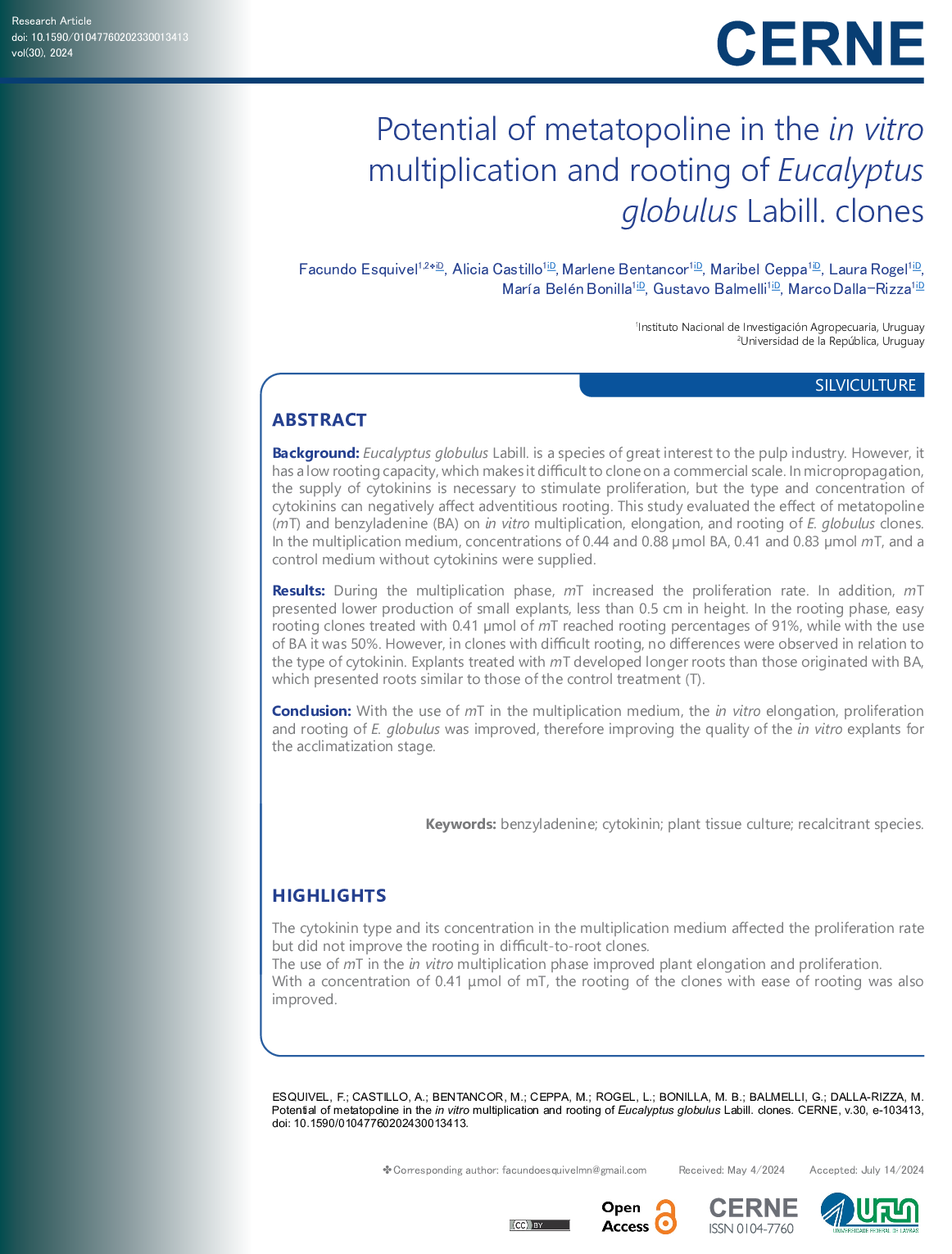ABSTRACT.- Background: Eucalyptus globulus Labill. is a species of great interest to the pulp industry. However, it has a low rooting capacity, which makes it difficult to clone on a commercial scale. In micropropagation, the supply of cytokinins is necessary to stimulate proliferation, but the type and concentration of cytokinins can negatively affect adventitious rooting. This study evaluated the effect of metatopoline (mT) and benzyladenine (BA) on in vitro multiplication, elongation, and rooting of E. globulus clones. In the multiplication medium, concentrations of 0.44 and 0.88 µmol BA, 0.41 and 0.83 µmol mT, and a control medium without cytokinins were supplied. Results: During the multiplication phase, mT increased the proliferation rate. In addition, mT presented lower production of small explants, less than 0.5 cm in height. In the rooting phase, easy rooting clones treated with 0.41 µmol of mT reached rooting percentages of 91%, while with the use of BA it was 50%. However, in clones with difficult rooting, no differences were observed in relation to the type of cytokinin. Explants treated with mT developed longer roots than those originated with BA, which presented roots similar to those of the control treatment (T). Conclusion: With the use of mT in the multiplication medium, the in vitro elongation, proliferation and rooting of E. globulus was improved, therefore improving the quality of the in vitro explants for the acclimatization stage. © 2024, Federal University of Lavras. All rights reserved.

